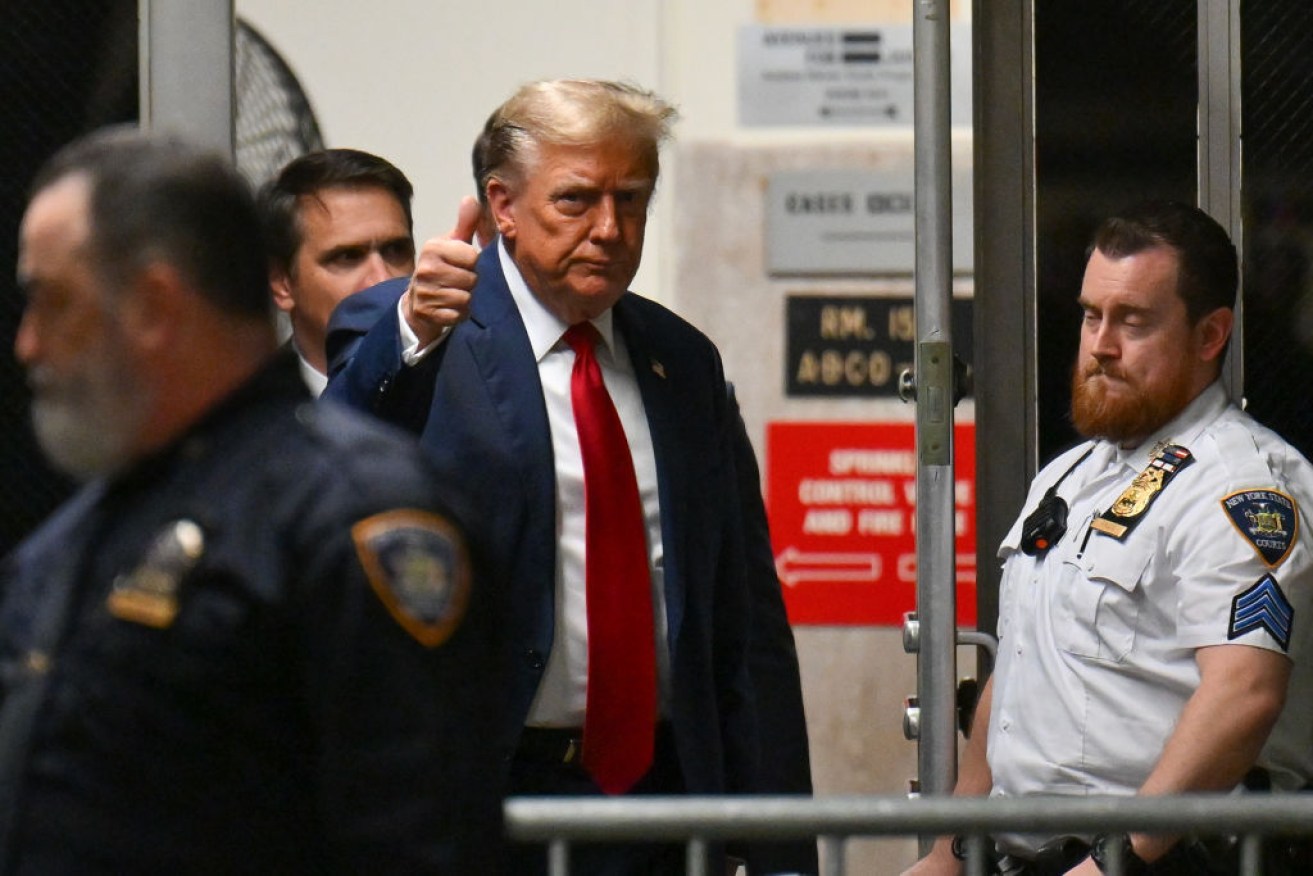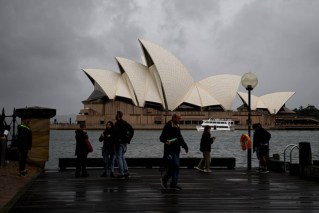Potential jurors dismissed as historic Trump criminal trial starts

Former US President Donald Trump enters the courtroom in New York. Photo: Getty
The judge in Donald Trump’s hush money trial has dismissed dozens of potential jurors who said they could not impartially decide whether the former US president is guilty or innocent of criminal charges.
On the first day of the historic criminal trial, the first to involve a former president, Justice Juan Merchan told nearly 100 prospective jurors they must set aside any biases or personal attitudes about the defendant or the case, including “political orientation”.
At least 50 were dismissed after saying they could not be impartial in judging Trump, the 2024 Republican candidate for president.
Others were excused who said they could not serve for other reasons.
“I just couldn’t do it,” one prospective juror was heard to say outside the courtroom.
Manhattan District Attorney Alvin Bragg, a Democrat, has charged Trump with falsifying records to cover up a $US130,000 ($A200,460) payment in the waning days of the 2016 presidential campaign to buy the silence of porn star Stormy Daniels about a 2006 sexual encounter she has said they had.
Trump’s former lawyer and fixer Michael Cohen has testified that he made the payments to buy Daniels’ silence ahead of the 2016 election, in which Trump defeated Democrat Hillary Clinton.
Trump has denied any such relationship with Daniels and has pleaded not guilty.
Many prospective panellists stretched their necks to get a look at Trump from their seats in the New York City courtroom.
Lawyers from both sides will seek to empanel 12 jurors and six alternates to hear what could be the only criminal case Trump faces before the November 5 election.
Choosing a jury from a pool of people from heavily Democratic Manhattan could take several days, to be followed by opening statements and testimony from a parade of potentially riveting witnesses including Cohen and Daniels.
Merchan said that in order to convict, jurors must find that Trump is guilty beyond a reasonable doubt, not that he is “probably” guilty.
Falsifying business records in New York is a felony punishable by up to four years in prison, although many of those found guilty have been sentenced to fines or probation.
Wearing his signature blue suit and red tie, Trump watched from the defendant’s table as prosecutors asked a judge to fine him and remind him he could go to jail for violating a gag order that bars him from interfering with potential witnesses.
Trump, 77, is required to attend the trial unless he seeks an exemption.
Prosecutors asked the judge to fine Trump $US1000 for each of three social-media posts this month about Cohen and Daniels.
“The defendant has demonstrated his willingness to flout the order. He has attacked witnesses in the case, in the past he has attacked grand jurors in the case,” prosecutor Christopher Conroy said.
Merchan set April 23 to consider the proposed fines.
Under Merchan’s gag order, Trump is barred from making public statements about witnesses concerning their potential testimony and about prosecutors, court staff and their family members if the statements are meant to interfere with the case.
Trump lawyer Todd Blanche said Trump did not violate the gag order because he was responding to Daniels and Cohen, who he said have been “just generally disparaging President Trump constantly”.
Cohen pleaded guilty in 2018 to violating campaign finance law although the federal prosecutors who brought that case did not charge Trump.
Trump has called Cohen a “serial liar” and his lawyers are expected to attack his credibility at trial.
Although the case is regarded by some legal experts as the least consequential of the four criminal prosecutions he faces, it is the only one guaranteed to go to trial before the November 5 election.
The businessman-turned-politician, who served as president from 2017 to 2021, says he is being targeted by his political enemies.
“This is political persecution,” Trump said before entering the courtroom.








